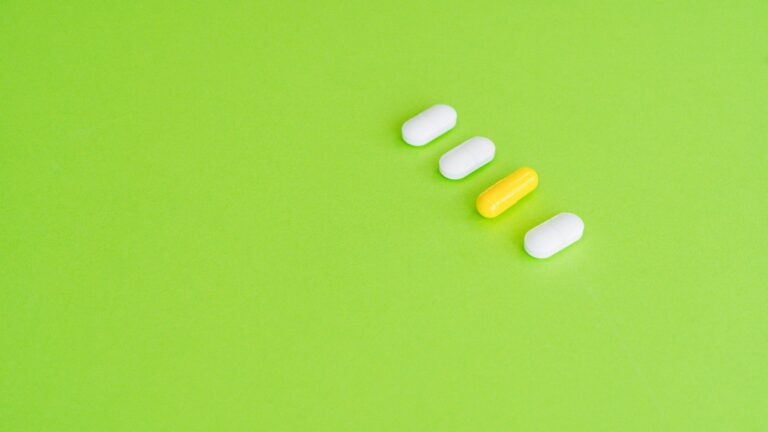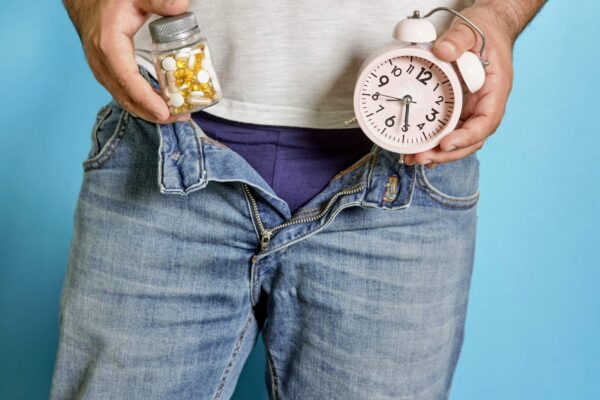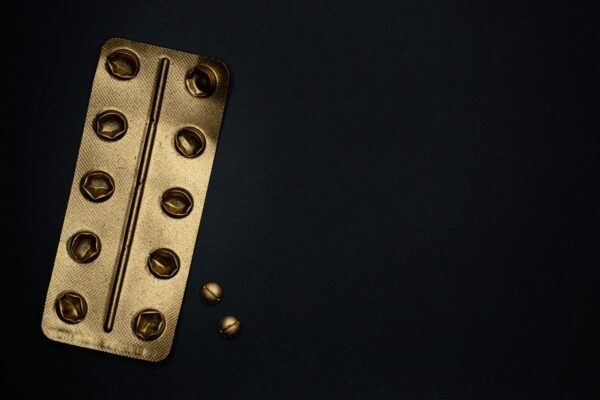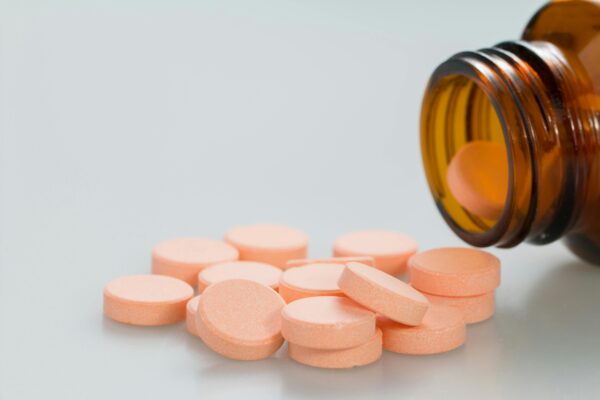When it comes to managing anxiety or depression, Escitalopram is often a go-to medication. However, like many antidepressants, it comes with its quirks—one of the more commonly discussed side effects being erectile dysfunction (ED). If you’re feeling like your bedroom game has hit a snag since starting this medication, you’re not alone. Let’s dive into what’s happening and, more importantly, what you can do about it.
- What Is Escitalopram?
- How Does Escitalopram Cause Erectile Dysfunction?
- Signs of Escitalopram-Induced Erectile Dysfunction
- What Can You Do About It?
- Is It Possible to Overcome ED Without Changing Medications?
- Why You Shouldn’t Ignore Escitalopram-Induced ED
- Can ED Improve Over Time on Escitalopram?
- Final Thoughts: Regain Control
- Studies, Sources, and Links
- FAQs: Escitalopram and Erectile Dysfunction
- Question: Can Escitalopram cause erectile dysfunction?
- Question: Is erectile dysfunction from Escitalopram permanent?
- Question: How can I manage erectile dysfunction while taking Escitalopram?
- Question: Are there any natural remedies to counteract Escitalopram-induced ED?
- Question: Should I stop taking Escitalopram if I experience erectile dysfunction?
- Question: Can switching to a different antidepressant help with erectile dysfunction?
- Question: Does erectile dysfunction affect all men taking Escitalopram?
What Is Escitalopram?
Escitalopram, sold under brand names like Lexapro, is a selective serotonin reuptake inhibitor (SSRI). It’s prescribed for conditions like anxiety and depression, and it works by increasing serotonin levels in the brain. While serotonin is great for your mood, it can sometimes rain on your parade when it comes to sexual performance.
SSRI-induced sexual dysfunction is no small matter, affecting up to 50-70% of users. For men, this often manifests as difficulty achieving or maintaining an erection, reduced libido, or delayed ejaculation. Not exactly the perks you were hoping for, right?
How Does Escitalopram Cause Erectile Dysfunction?
To understand how Escitalopram causes ED, we need to talk about serotonin. While serotonin is the brain’s happiness booster, it can also interfere with the signals that allow for sexual arousal and erection. Here’s how it happens:
- Reduced Dopamine Activity: Escitalopram can lower dopamine levels, which play a key role in sexual excitement.
- Blood Flow Interference: It may affect nitric oxide levels, crucial for blood flow to the penis.
- Hormonal Shifts: SSRIs can mess with testosterone, reducing your mojo.
The result? Frustration in the bedroom and a hit to your confidence.
Signs of Escitalopram-Induced Erectile Dysfunction
If you’ve noticed any of the following since starting Escitalopram, it could be linked to the medication:
- Difficulty achieving or maintaining an erection.
- Reduced interest in sexual activity.
- Delayed or absent ejaculation.
- Lowered self-esteem due to sexual performance issues.
The key is to recognize these symptoms and understand they’re not a reflection of your masculinity—they’re a side effect of the drug.
What Can You Do About It?
Now for the good news: there are solutions. ED caused by Escitalopram doesn’t have to be a deal-breaker. Here are strategies that can help:
1. Talk to Your Doctor
Before you make any changes, have an open conversation with your healthcare provider. They might suggest:
- Adjusting the Dose: A lower dose could alleviate side effects without compromising its effectiveness.
- Switching Medications: Not all antidepressants cause ED. Alternatives like bupropion are known to have fewer sexual side effects.
2. Consider “On-Demand” ED Medications
Medications like sildenafil (Viagra) or tadalafil (Cialis) can temporarily counteract ED. These drugs increase blood flow to the penis, making erections more manageable despite Escitalopram’s effects.
3. Timing Is Everything
Some men find success by timing their sexual activity. For instance, taking Escitalopram after sex rather than before may minimize its impact.
4. Try Natural Remedies
Natural supplements like L-arginine, ginseng, and Maca root have been touted for their benefits in enhancing erectile function. However, consult with your doctor before adding these to your regimen.
5. Lifestyle Changes
Adopting healthier habits can improve overall sexual health. Focus on:
- Regular Exercise: Boosts testosterone and improves blood flow.
- Healthy Diet: Foods like dark chocolate, spinach, and nuts support vascular health.
- Stress Management: Stress can worsen ED. Consider relaxation techniques like yoga or meditation.
Is It Possible to Overcome ED Without Changing Medications?
Yes, but it may take a combination of patience, communication, and creativity. Working closely with your doctor to find a personalized solution is the best approach. Also, involve your partner in these discussions—they’ll likely appreciate your openness and be more understanding of the situation.
Why You Shouldn’t Ignore Escitalopram-Induced ED
Sexual health is a vital part of overall well-being. Ignoring ED can lead to:
- Strained Relationships: Intimacy issues can take a toll on your partnership.
- Lower Self-Esteem: Feeling less confident in the bedroom can spill over into other areas of life.
- Discontinuing Medication Prematurely: Quitting Escitalopram without medical guidance can worsen anxiety or depression symptoms.
Addressing ED ensures you stay on track with your mental health treatment without sacrificing quality of life.
Can ED Improve Over Time on Escitalopram?
For some men, side effects lessen over time as the body adjusts to the medication. However, this isn’t guaranteed. If the problem persists for more than a few months, it’s time to explore other options with your doctor.
Final Thoughts: Regain Control
Erectile dysfunction caused by Escitalopram is a frustrating but manageable side effect. With open communication, medical guidance, and a proactive approach, you can find a solution that works for both your mental and sexual health. Don’t let ED hold you back—it’s just a bump in the road, not the end of the journey.
Remember, the key is to stay informed, be patient with yourself, and seek help when needed. After all, life’s too short to let a little pill steal your mojo!
Now go on, man. Talk to your doctor, grab that spinach salad, and get back in the game. You’ve got this!
Studies, Sources, and Links
If you’re looking to dive deeper into the connection between Escitalopram and erectile dysfunction, several scientific studies and trusted sources can provide valuable insights. Below are some references that explore the topic in detail:
Scientific Studies on Escitalopram and Sexual Dysfunction
- Selective Serotonin Reuptake Inhibitors and Sexual Dysfunction: A Meta-Analysis
- Source: Journal of Clinical Psychiatry
- Summary: This comprehensive study evaluates the prevalence of sexual dysfunction among men taking SSRIs, including Escitalopram, highlighting its impact on erectile function.
- Read the full study
- Impact of Antidepressants on Male Sexual Health: A Review
- Source: International Journal of Impotence Research
- Summary: This research examines the mechanisms by which antidepressants like Escitalopram contribute to ED and potential treatment options.
- Read the full study
- The Effects of SSRIs on Testosterone Levels and Erectile Function
- Source: Endocrine Reviews
- Summary: This paper discusses how SSRIs may influence hormonal balance and blood flow, contributing to ED symptoms.
- Read the full study
Trusted Sources for More Information
- National Institute of Mental Health (NIMH)
- Overview of antidepressants, side effects, and sexual health management.
- Visit NIMH
- Mayo Clinic – Escitalopram Side Effects
- Detailed explanation of common and rare side effects of Escitalopram, including its impact on sexual function.
- Visit Mayo Clinic
- Harvard Health Publishing – Antidepressants and Sexual Side Effects
- Expert-backed insights on how antidepressants like Escitalopram can affect sexual performance and potential coping strategies.
- Visit Harvard Health
- WebMD – Escitalopram (Lexapro) Overview
- Comprehensive guide covering dosage, side effects, and tips for managing unwanted symptoms.
- Visit WebMD
By exploring these sources, you can gain a deeper understanding of how Escitalopram affects erectile function and discover actionable steps to address it. Always consult with a healthcare professional before making any changes to your medication or treatment plan.
FAQs: Escitalopram and Erectile Dysfunction
Question: Can Escitalopram cause erectile dysfunction?
Yes, Escitalopram, like other SSRIs, can cause erectile dysfunction by increasing serotonin levels, which may interfere with sexual arousal and blood flow to the penis.
Question: Is erectile dysfunction from Escitalopram permanent?
In most cases, erectile dysfunction caused by Escitalopram is temporary and improves once the body adjusts to the medication or after discontinuation under medical supervision.
Question: How can I manage erectile dysfunction while taking Escitalopram?
Managing ED can involve adjusting the medication dosage, switching to another antidepressant, using ED medications like Viagra, or incorporating lifestyle changes such as exercise and a healthy diet.
Question: Are there any natural remedies to counteract Escitalopram-induced ED?
Some natural remedies that may help include L-arginine, ginseng, Maca root, and maintaining an active lifestyle. However, it’s important to consult a healthcare provider before trying supplements.
Question: Should I stop taking Escitalopram if I experience erectile dysfunction?
No, you should not stop taking Escitalopram without consulting your doctor. Abrupt discontinuation can lead to withdrawal symptoms and a relapse of anxiety or depression.
Question: Can switching to a different antidepressant help with erectile dysfunction?
Yes, switching to another antidepressant like Bupropion, which has a lower risk of sexual side effects, may help. Your doctor can provide personalized recommendations based on your health needs.
Question: Does erectile dysfunction affect all men taking Escitalopram?
Not all men experience erectile dysfunction while taking Escitalopram. The side effect varies based on factors such as dosage, individual response, and overall health.
This article is for informational purposes only and should not replace professional medical advice. If you’re experiencing persistent ED, consult a qualified healthcare provider.





